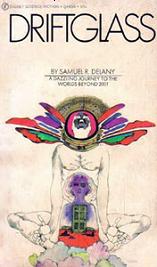It’s August 1st, so time for a new list of books read. Lots of history at the start of the month, as I had just bought a pile of them in June. Also a lot of Sayers novels, as I’m in the process of rereading them in order. Little in the way of science fiction this time, as I just haven’t been in the mood
for it.
Europe: Privilege and Protest 1730-1789 — Olwen Hufton
A look at European history in the decades before the French revolution would decisively end the world of the Ancien Regime, showing how interlocking systems of privilege ruled this world, both priviledges enjoyed by the leite, but also by more humbler folk. A much more modern history of the same period as covered by Europe of the Ancien Regime 1715-1783 I read at the end of June.
The World Turned Upside Down — Christopher Hill
During the English civil war of parliament against king, there were people who wanted to go much further than parliament was willing to go, to revolutionise class relations in England. Diggers, Levelers and others for a few precious years created a glimpse of a more just, more equal society, a “World Turned Upside Down”.
Europe Between Revolutions 1815-1848 — Jacques Droz
After the French revolution had been finally repressed in 1815, a deliberate attempt was made to restore the stability of the Ancien Regime as well as the authority of the old ruling classes. Jacques Droz is excellent in making clear the stresses and contradictions between the ideal and reality that would ultimately lead to the failure of this.
The Unpleasantness at the Bellona Club — Dorothy L. Sayers
The fourth Wimsey novel, again a novel in which the detective story is used as a lens through which to look at contemporary British society. In this case it’s the impact the First World War had on the lives of an entire generation of veterans, coming to terms with their experiences as well as their difficulties adjusting to civilian life.
The Structures of Everyday Life — Fernand Braudel
The first installment in Braudel’s three part examination of the roots of capitalism, it’s a much easier read than his earlier books on the Mediterranean I read a few years ago. This part examines how ordinary people lived, how they interacted with the wider economy from the fifteenth to the eighteenth centuries, when our current capitalist societies were being formed.
Strong Poison — Dorothy L. Sayers
The novel that introduces Harriet Vane to the Lord Peter Wimsey series and Wimsey falls in love with her immediately. Some may think her somewhat of a Mary Sue, and there certainly may be hints of Mary Sueness here, but in the end she’s strong enough to be more than that. In the context of reading the entire Wimsey series in order, it’s clear this is a hinge point for it, where you can see the mood of the series shift.
Five Red Herrings — Dorothy L. Sayers
Reading this for the first time I liked it, but was still unfamiliar enough with Sayers to realise how much this not just a traditional detective novel of a kind Sayers never attempts anywhere else, but a critique of them. It’s quite jarring in tone with the rest of the series, not fitting in with either the pre or the post-Strong Poison novels. In fact, it reads like Sayers meant it as an example of how not to write a detective novel, with all its fuzzing about train tables and such.
Imperial Life in the Emerald City — Rajiv Chandrasekaran
A good but limited critique of the United States occupation of Iraq, which concentrates on the blunders made by the CPA, but which doesn’t question the fundamental right of America to actually be in the country.
New Skies — Patrick Nielsen Hayden (editor)
A collection of science fiction stories from the past two decades, aimed at younger readers new to science fiction. Some duds, but on the whole it does give a good oversight of what you can expect from the genre.
Last van de Oorlog — Stef Scaliola
A history thesis turned into a book, this looks at the ways in which the debate about the wars fought by the Netherlands to hold on to Indonesia in 1946-1949, in particular the warcrimes committed during it and how these have been covered up or revealed. Scaliola looks at the roles journalists, historians, politicians and the veterans themselves played in this process of remembrance.
Britain’s Gulag — Caroline Elkins
Incredibly depressing, this is the history of Britain’s attempt to quash the Kenyan struggle for independence, largely by emulating the way the nazis behaved in Poland. Pogroms, a massive concentration camp system in which almost the neitre Kikuyu population of Kenya was held as slave labour, roaming death squads and institutionalised torture of the worst kind were all part of this attempt to crush the Mau Mau rebellion and make the Kikuyu into obedient, loyal subjects of the white settler population. All this seven years after World War 2.
Eight O’Clock Ferry to the Windward Side — Clive Stafford Smith
Clive Stafford Smith is one of the volunteer lawyers respresenting the detainees in Guantanamo Bay. This is his personally informed account of America’s Gulag Archipelo and its absurdities. Remarkable funny in places.
